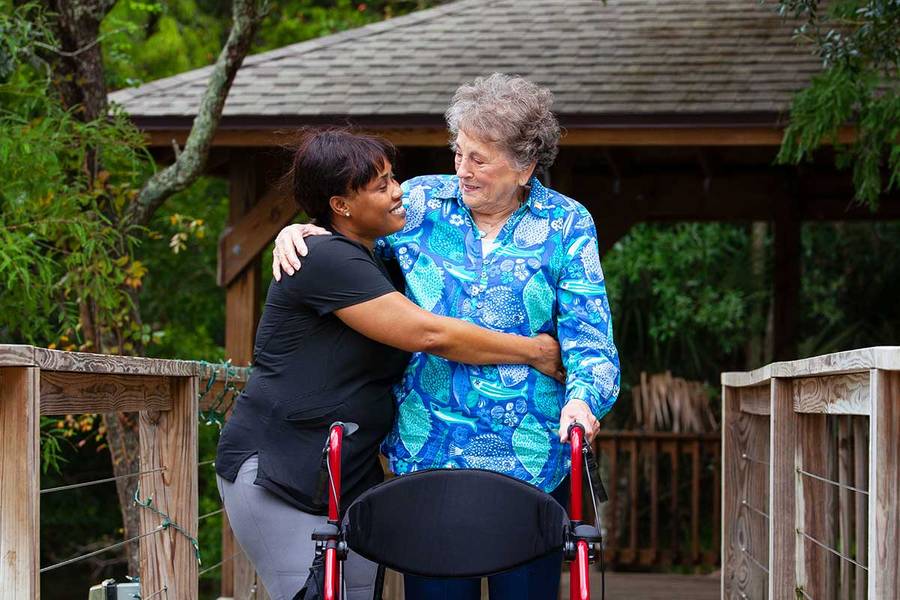Making sure your senior-citizen parent has adequate care can be an arduous task. Discussing enhanced care or senior-living options can be difficult when they’ve taken care of themselves for their entire adult life.
Your parent may say they have everything under control. However, you’ve noticed the opposite. Their hygiene declines. Falls happen regularly. Bills go unpaid. Nutritional needs are neglected. Driving becomes increasingly difficult.
As a child, a nurturing instinct kicks in to make sure your parent is happy and healthy.
Once you see their health and/or cognitive abilities start to decline, it’s imperative to look at the best options to ensure your loved one is taken care of going forward.
While it may seem more economical and easier to get your parent to go along with home healthcare, it’s not necessarily the most cost-efficient option.
Modern assisted-living communities cover all aspects of residents’ needs, ranging from a spacious apartment, healthy meals and snacks, and regular activity and socialization that many senior citizens are lacking while still living alone.
Just as important, they also have medical professionals on staff to make sure there is a plan in place to stay in front of any pre-existing conditions, administer medications and keep an eye on their welfare to watch for any further decline in physical or mental capabilities.
Assisted-living community staff is also available to help with bathing and dressing, along with transportation to appointments. Cleaning and laundry service also helps take one more thing off your parent’s plate.
An assisted living facility for mom or dad will generally run $3,000-$6,000 each month. That may sound steep, but home health care options may end up being considerably more, depending on the amount of help required.
A non-certified home health care assistant could run $19/hour. If around-the-clock care is needed, that balloons to more than $14,000/month. That figure does not include added-on costs, such as a certified-care helper, or even a nurse.
Home modifications to make it accessible to a senior-citizen parent will also be quite costly.
Assisted-living communities are springing up all over the country, and the amount of competition in the market makes prices reasonable. Your more upscale options of assisted living have sprawling accommodations and luxury apartments that your parent can make feel more like home with their own belongings and treasured keepsakes.
These one-and two-bedroom apartments also come with their own kitchen and bathroom.
Staff at assisted living communities is vetted, trained and insured properly. On the other hand, many home care agencies are registries, which leave the onus of insurance and workers compensation coverage to the caregiver.
At assisted-living communities, you have the reassurance that there are multiple layers of supervision and security in place to keep your parent or loved one safe.
If your parent decides to go the route of home health care, the same safety net of making sure the caretaker is qualified and competent is not a given. Plus, having a stranger in their home all the time can be viewed as intrusive.
In an assisted living community, they are around people of the same age range and similar interests. Regular trips and daily activities are part of the package to make sure the assisted-living members have regular interaction with others and engagement in the community.
For more information on what Starling has to offer, find a community.

